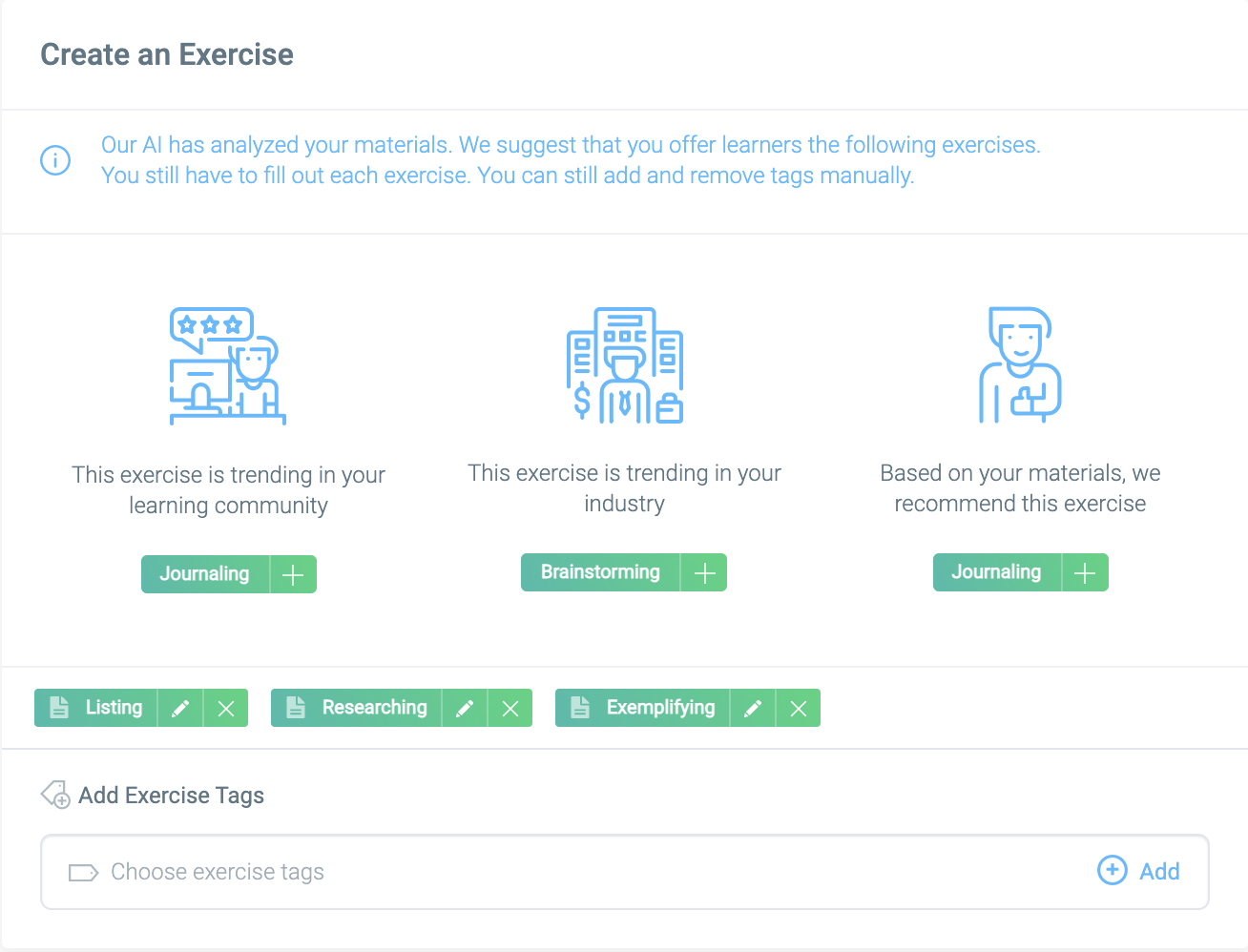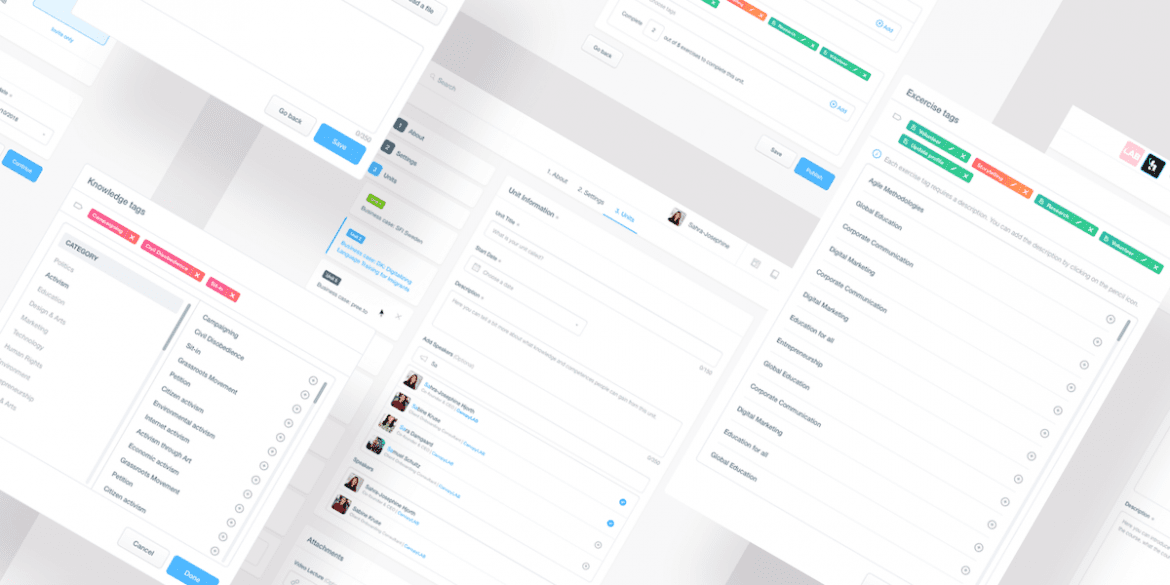In 2015, while conducting her Ph.D. research at Aalborg University on virtual learning environments, social media, and empowerment through learning, Sahra-Josephine Hjorth co-founded CanopyLAB with the vision of revolutionizing the way we learn.
Five years later, CanopyLAB is pioneering the future of learning through a learning experience platform that, through Artificial Intelligence (AI), combines Nordic principles of education with adaptive learning and a social network structure.
The platform is optimized by AI, not because it’s a buzzword, but because it solves a series of very specific problems for learners and course creators, and solving those makes digital course creation fun, fast and scalable. Let me elaborate:
Self-building content, pedagogical support, and quizzes that will blow your socks off
While we often work with learning nerds – a group we strongly identify with – a biology teacher once reminded us that you can be an incredible teacher without being a learning expert. He loved geeking out about biology but not about learning design and he couldn’t define social or adaptive learning. That interaction taught us an incredibly important lesson. That our job is to empower course creators to make a difference for learners, and the task of creating courses should be easy, fun, and adaptable to the needs of the course creators in a way that accommodates both the learning nerd and the biology nerd. So we created a series of AI automation processes that can assist you in creating courses. How? Well, we took a look at the DNA of a course first.
Mapping the DNA that makes up a course
On the CanopyLAB platform courses consist of:
- Learning materials (videos, audio files, pdfs, PowerPoints, and much more)
- Course introduction texts and unit descriptions with learning goals
- Pedagogical exercises such as adaptive quizzes, learning journals, brainstorming, baseline tests to mention a few.
- A tagging structure that allows learners to earn knowledge and exercise tags as they complete courses, showing progress in knowledge and skills shaped as a virtual CV.
- “Behind the scenes” a few more items are critical, one being curating exercises and not simply designing the content. It’s actually a lot of work pairing content and learning goals with exercises. Especially since we have 55 learning templates.
Let’s refer to each of these items as DNA molecules.
Automating each DNA molecule one by one
The CV
Our first challenge was actually cracking the CV which shows the knowledge you have learned from a course. It’s a very cool functionality because it helps us articulate what we have learned and what we are good at. Initially, course creators manually picked tags that they felt were representative of what the learner would gain from each unit. But after we introduced Natural Language Processing (NLP) to meta-tag and catalog all the content that you upload onto a course (to our cloud as you commence building the course), we learned that after serious algorithm training, we could meta-tag all text and video materials in less than 2 minutes and create an automated CV based on that, because our AI knows what every piece of material is about and what you learn from reading or watching it. Internally we refer to this algorithm as A1, and the process we used to train it as Dragon Training – and yes we are obsessed with How to Train Your Dragon.

Curating the pedagogical exercises
After this process, our AI engine recommends a pedagogical exercise for the course creator to include in the unit. Recommendations are essential because picking an exercise out of our 55+ templates can be tricky and time-consuming. This is extremely helpful if you’re not sure which exercise is best for the content that you uploaded or which exercises your learners prefer.
AI Quiz question engine and 7 other exercises created by the AI
After our engine recommends pedagogical exercises, you may be unsure how to describe an exercise or want a bit of inspiration as to how it could be done. Don’t worry, our AI also auto-generates exercise descriptions for you; from instant quiz questions generated based on your course content to learning journals and definitions exercises designed to ensure learners understand all fundamental concepts. For now, all AI features are available in English only.


Writing the course descriptions and learning goals
Based on the materials and choices made by the course creator, we can now automatically generate your unit description that details what the course is about and what the learners will gain from taking part in the course. In 2021 we are adding a learning goal generator. Isn’t that cool?
Now, we may not have a totally self-building course yet, but we have automated the most essential molecules already, and are excited about inviting you on this journey with us.
Do you want to take the Tesla of education out for a free test ride?
Book a demo today!



